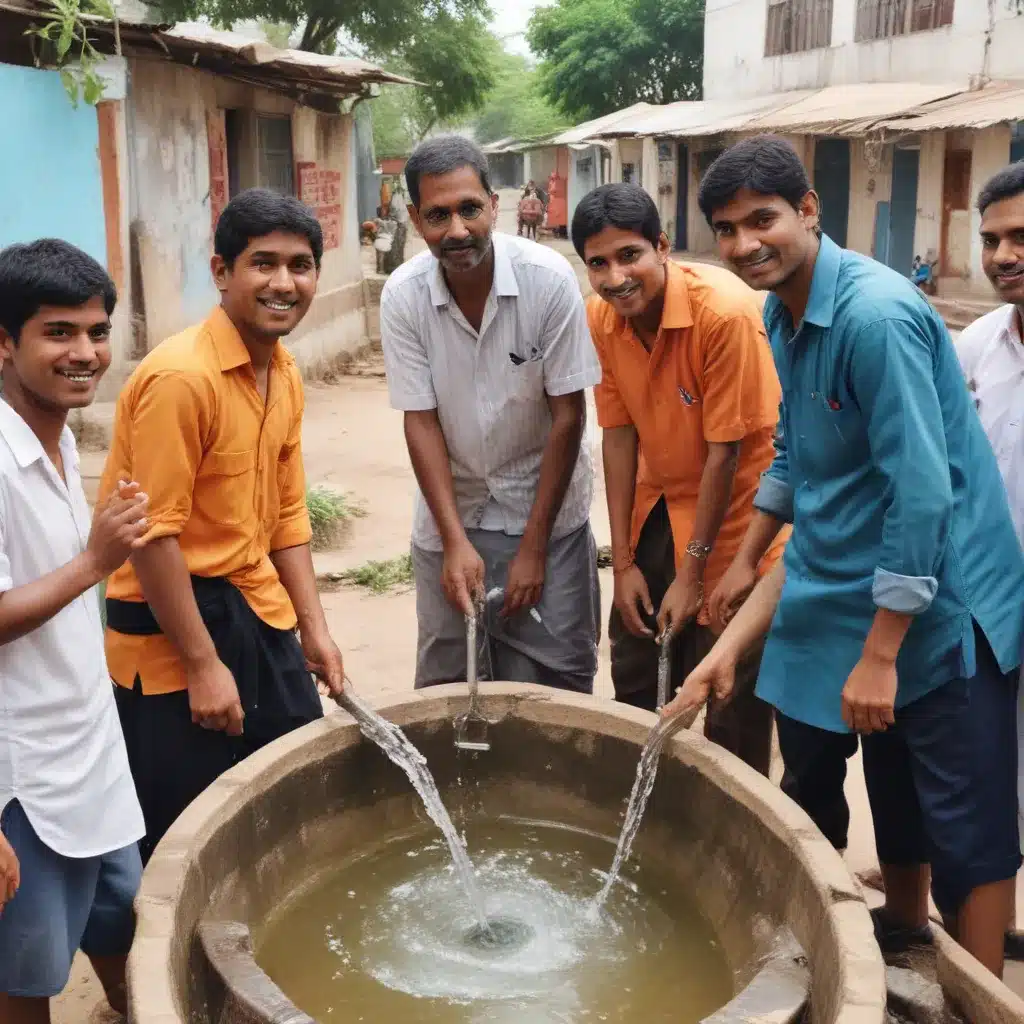
Addressing the WASH Challenges in Hyderabad
Hyderabad, the vibrant and rapidly growing city in southern India, faces significant challenges in providing comprehensive water, sanitation, and hygiene (WASH) services to its diverse population. As the city expands, the demand for reliable and equitable access to clean water and proper waste management has become increasingly pressing. To address these critical issues, fostering effective inter-departmental coordination is crucial.
Navigating the Complexities of WASH Service Delivery
The delivery of WASH services in Hyderabad involves multiple government agencies, each with its own mandate and priorities. The Hyderabad Metropolitan Water Supply and Sewerage Board (HMWSSB) is responsible for water supply and sewerage, while the Greater Hyderabad Municipal Corporation (GHMC) oversees solid waste management. Additionally, the Telangana State Pollution Control Board (TSPCB) plays a crucial role in monitoring water quality and environmental compliance.
Coordinating the efforts of these various departments is essential to ensure comprehensive and efficient WASH service delivery. However, this coordination has historically been a challenge, leading to gaps in service, duplication of efforts, and a lack of a cohesive, city-wide approach.
Promoting Collaborative Approaches
To address these challenges, a concerted effort is needed to foster a culture of collaboration and information-sharing among the different WASH-related departments in Hyderabad.
Establishing a WASH Coordination Committee
One effective strategy is to establish a WASH Coordination Committee, comprising representatives from HMWSSB, GHMC, TSPCB, and other relevant stakeholders. This committee would serve as a platform for regular dialogue, joint planning, and the implementation of integrated WASH initiatives.
Key Responsibilities of the WASH Coordination Committee:
-
Data Sharing and Information Exchange: The committee would facilitate the sharing of data, best practices, and lessons learned among the participating departments. This would help identify gaps, align priorities, and develop a holistic understanding of the city’s WASH landscape.
-
Joint Problem-Solving: The committee would provide a forum for collaborative problem-solving, allowing the various departments to address complex WASH-related challenges together. This could include finding solutions for water scarcity, improving sanitation coverage, or enhancing waste management systems.
-
Integrated Planning and Budgeting: The committee would work towards aligning the planning and budgeting processes of the different departments, ensuring that WASH investments are coordinated and maximize their impact.
-
Monitoring and Evaluation: The committee would establish mechanisms to monitor the progress and impact of WASH interventions, facilitating the ongoing evaluation and refinement of strategies.
-
Community Engagement: The committee would spearhead community outreach and awareness campaigns, empowering citizens to become active partners in WASH service delivery and conservation efforts.
Leveraging Existing Platforms
In addition to the WASH Coordination Committee, Hyderabad can leverage existing platforms and initiatives to foster inter-departmental collaboration. For example, the city could build upon the success of the Mission Vatsalya program, which promotes integrated service delivery for children and women, to expand its scope to include WASH-related components.
Furthermore, the city could explore opportunities to align its WASH strategies with the Global Water Strategy developed by the United States Agency for International Development (USAID). This would not only provide access to technical expertise and funding but also enable the city to benchmark its progress against global best practices.
Empowering Community-Driven WASH Initiatives
While inter-departmental coordination is crucial, the success of WASH service delivery in Hyderabad also depends on the active participation and ownership of local communities. By empowering communities to become active partners in WASH initiatives, the city can ensure that interventions are tailored to their specific needs and preferences.
Community-Based WASH Planning and Implementation
The WASH Coordination Committee should work closely with community-based organizations (CBOs), non-governmental organizations (NGOs), and local leaders to involve residents in the planning and implementation of WASH projects. This could include:
- Conducting participatory needs assessments to understand the unique WASH challenges faced by different neighborhoods.
- Engaging communities in the design of water, sanitation, and hygiene infrastructure to ensure user-friendly and culturally appropriate solutions.
- Facilitating community-led monitoring and feedback mechanisms to ensure the responsive delivery of WASH services.
- Supporting community-based management of WASH assets, such as the operation and maintenance of water kiosks or community toilets.
Capacity Building and Awareness Raising
Alongside community engagement, the WASH Coordination Committee should invest in capacity-building initiatives to empower residents to become active stewards of WASH services. This could include:
- Conducting WASH-related health and hygiene education campaigns to promote behavioral change.
- Training community members in the operation and maintenance of WASH infrastructure, enabling them to take ownership of their local systems.
- Establishing community-based monitoring and grievance redressal mechanisms to ensure accountability in WASH service delivery.
By fostering a collaborative environment and empowering communities, Hyderabad can pave the way for a comprehensive and sustainable WASH service delivery model that addresses the diverse needs of its rapidly growing population.
Conclusion
Improving water, sanitation, and hygiene (WASH) services in Hyderabad requires a concerted effort to promote inter-departmental coordination and community engagement. By establishing a WASH Coordination Committee, leveraging existing platforms, and empowering community-driven initiatives, the city can unlock the potential for comprehensive and equitable WASH service delivery.
This multi-stakeholder approach, rooted in collaboration and community ownership, will be crucial in addressing the pressing WASH challenges faced by Hyderabad. Through this holistic strategy, the city can ensure that all its residents have access to safe, reliable, and sustainable WASH services, ultimately improving public health, environmental sustainability, and the overall quality of life for its citizens.

